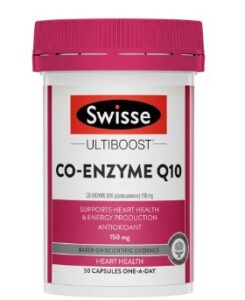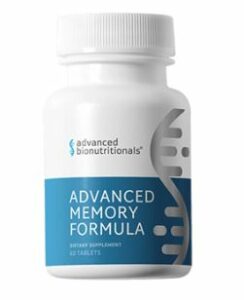
A glass of water and pills
How much Co Q10 should I take?
Co Q10 also known as Coenzyme Q10 is produced by your body naturally, it is a very important antioxidant for maintenance and cell growth. The aging process affects the levels of Co Q10 that we produce, statin medication has a major impact on levels as studies have shown in people with heart disease. If you are on statins and feeling tired a lot the answer is to take a quality Co Q10 supplement to increase your energy levels, people often as how much Co Q10 should take.
How much CoQ10 does your body need?
The recommended daily dosage for adults is 300 mg this can be taken in 100 mg doses preferably with a meal that contains fat or oils for better absorption, if the Co Q10 is a water-soluble formula then you don’t need to take it with fat or oils.

Oily fish
Where else can you get CO Q10?
It is present in fish, meat, and whole grains but only in small amounts, not enough to make a significant difference to the amount of CO Q10 that a depleted body needs.
You can purchase Co Q10 in supplements, tablets, or capsules it can also be administered by IV, it has been used as a treatment for heart conditions, Parkinson’s disease, and migraine headaches.
Does CO Q10 help with energy?
It’s common knowledge that Co Q10 is good for your heart, however, combining the supplement with physical exercise can have a real impact on how you feel positively. In a study where 17 people were asked to take either 100 milligrams or 300 milligrams of Co Q10 each day for a total of eight days whilst being physically active on a bicycle ergometer. It was found that the 300 milligrams group performed better and was less tired. In another study skiers who were given 90 milligrams of Co Q10 a highly bioavailable supplement for 6 weeks had much better stamina and energy.
How does CO Q10 work?
Co Q10 converts fats and carbohydrates into something called ATP a form of energy that our body’s cells need to function, in other words, it is the spark that lights up energy production in our bodies. Some research has suggested that Coenzyme Q10 has substantial health benefits for conditions like:
- Fibromyalgia
- Migraine
- Heart disease
- A lack of energy from statin use
- Parkinson’s disease
- Gum disease
Very often a lack of energy could be put down to getting older however it may be something as simple as depleted levels of Co Q10, our bodies make enough of it for our needs but aging makes the levels reduce. People who feel like this have reported a surge in energy following Co Q10 supplementation.
Certain types of foods like beef heart, chicken liver, pork, and fish like mackerel or salmon have Co Q10 on average a person eating this type of food will only consume around 5-10 milligrams of Co Q10 daily, this is only 10% of what they need, so it is very important to supplement your diet with Co Q10.

Scientific studies image
Scientific studies
There isn’t a huge amount of research behind Co Q10 however the studies that have been done show improvements in these conditions:
- Migraines: Research has demonstrated that Co Q10 may reduce how frequently these headaches occur.
- Statin muscle pain: Muscle weakness is associated with statin usage, research has suggested that Co Q10 may help weak muscles.
- Parkinson’s: This is a progressive disorder within the nervous system, it affects movement, research suggests that Co Q10 may help people in the early stages of the disease.
- Heart failure: One study showed that Co Q10 taken orally showed improvement in symptoms of heart failure, it has also been shown to reduce blood pressure, and combining Co Q10 with other nutrients may help people recover from heart valve and heart bypass surgery.
Is Co Q10 safe to take?
While Co Q10 may be of benefit in treating conditions like Parkinson’s disease and heart failure, it is safe to take, side effects are few, however, it is always a good idea to talk to your doctor first. Always take as directed on the supplement label.

Side effects image
Side effects
It is safe to take Co Q10 supplements as directed by the manufacturer, side effects are in the mild category and include
- Dizziness
- Headaches
- Nausea
- Skin rash
- Diarrhea
Precautions
Women who are pregnant or breastfeeding should not take Co Q10 because there are no studies to show that it is safe.
Drug Interactions
Co Q10 may increase the risk of a blood clot in people who are on blood thinners because it may affect its ability to keep the blood thin thus increasing the risk the blood clotting.
More about Coenzyme Q10
Coenzyme Q10 (CoQ10) is a nutrient that is found in every cell in the body and is important for energy production. It is also an antioxidant, which means it helps protect cells from damage caused by harmful molecules called free radicals. CoQ10 levels tend to decline with age, and low levels have been linked to a number of health conditions, including heart disease and neurodegenerative diseases.
CoQ10 is available as a dietary supplement and is often taken for its potential health benefits, which include supporting heart health, reducing muscle damage during exercise, and improving symptoms of certain neurological disorders.
So, how much CoQ10 should you take? The appropriate dosage of CoQ10 will depend on a number of factors, including your age, overall health, and the specific health condition you are trying to address. It is important to speak with a healthcare provider before starting any supplement regimen, as they can help determine the right dosage for your individual needs.
According to the National Institutes of Health (NIH), the recommended daily dosage of CoQ10 varies based on the form of the supplement and the specific health condition being treated. For general health and prevention of CoQ10 deficiency, the NIH recommends a daily dosage of 30-200 mg. For the treatment of specific health conditions, higher dosages may be recommended. For example, for the treatment of heart failure, a daily dosage of up to 300 mg may be recommended.
It’s important to note that CoQ10 can interact with certain medications and may cause side effects in some people. For example, it may lower blood sugar levels and interfere with blood thinning medications. It’s also important to follow the recommended dosage and to not exceed the upper limit of 300 mg per day, as higher dosages may be associated with increased risk of side effects.
In summary, the appropriate dosage of CoQ10 will depend on a number of factors and should be determined by a healthcare provider. It’s important to speak with a healthcare provider before starting a CoQ10 supplement regimen and to follow the recommended dosage to help minimize the risk of side effects.




Leave a Reply
Leave a reply here